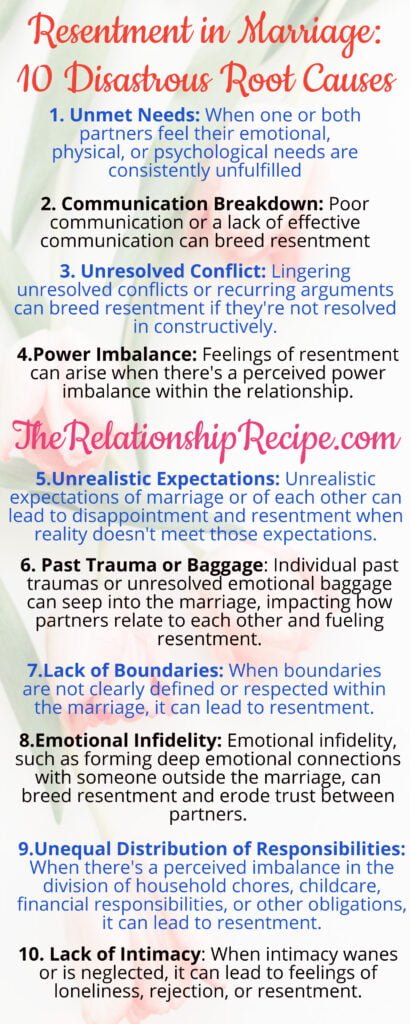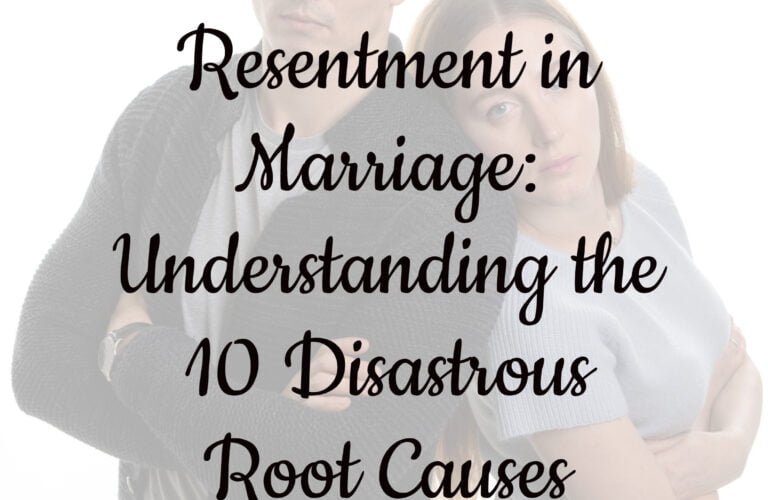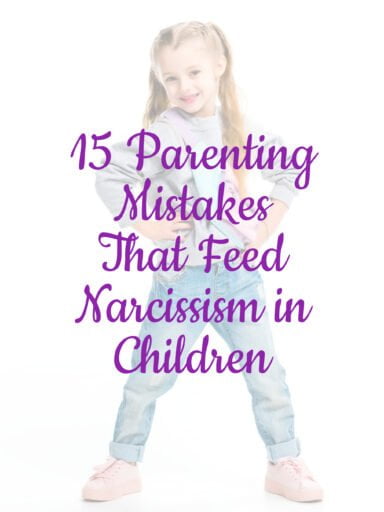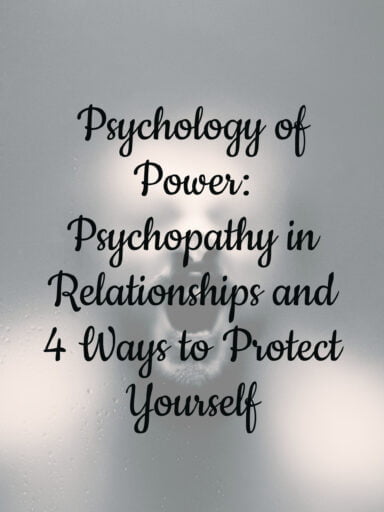The Silent Poison: Resentment in Marriage
Resentment in marriage is like a silent poison, slowly corroding the foundation of love and trust upon which a healthy relationship is built. It can start small, perhaps with a minor disagreement or unmet expectation, but if left unchecked, it can grow into a formidable barrier that threatens the fabric of the marital bond.
In my experience, resentment in marriage has been between my husband and I for years now. Due to my innate desire to be a “good wife,” and keep things peaceful, I have made the mistake of stuffing my anger down. I gave up because nothing ever gets resolved, which is even more upsetting, when I think of it.
If I didn’t stuff it, we’d be fighting constantly.
Here is a typical day for me:
I get up, and clean the kitchen from last nights dinner. I see dishes in the sink that no one bothered to soak, or at least rinse. The food is now crusted, dried and glued on from sitting like that all night. (To be honest, my kids do this as well. Thats another story.)
Despite my asking over and over to please at least soak your dishes.
Then, I go to the dishwasher and the dishes are arranged haphazardly, making it difficult for the dishes to get cleaned.
Despite my patient “teaching” over and over how to properly load a dishwasher.
Then, I go to take a shower. I step on the bath mat next to shower and cold water squishes between my toes.
Despite my asking over and over to please dry off in the shower instead of stepping out dripping wet.

Now times this by every. Single. Day. For 30 years. Not only is this a crappy way to start the day, it’s hell on marriage!
Do my complaints sound petty? Maybe, but no one could say I was asking for the world either. I don’t ask for much, but it would be nice to get some support for something that is so simple, yet helpful.
These seemingly minor things would mean the world to me because then I’d feel heard, respected, and valued.
Instead, I feel like a damn windbag. A nag that spews hot air into nothingness.
I don’t like feeling that way, and since I don’t see myself as being that kind of person, I just stopped saying anything.
I silently stew.

I can feel my anger and resentment building while he’s gone during the day. As each hour passes, my anger builds at the fact that nothing changes. I have to talk myself down before he gets home, or it’s gonna be WW3 in my house.
Don’t get me wrong. I appreciate the things my husband does around here. However the difference between he and I is, that if he tells me he doesn’t like something I’m doing, (like slamming the toilet seat down) I take it to heart and give a real try at pleasing him. I don’t think he’s ever had to ask me more than twice – and that toilet seat hasn’t been slammed since 1995!
Believe me, there are worse things in our marriage. In big picture, these are minor. But the grind of feeling this way, day after day, on TOP OF the major things that have happened, have killed my love, and the desire to try anymore. Why bother when it isn’t reciprocated?
I am now in stage 4 – detachment.

4 Stages of Resentment in Marriage
Resentment doesn’t develop overnight; rather, it evolves through various stages, each marked by increasing intensity and emotional distance.
Initially, it might begin with a sense of disappointment or frustration over unmet needs or expectations. As these feelings persist and remain unresolved, they can give way to resentment.
The 4 stages of resentment in marriage typically include:
- Denial and Dismissal: At first, you might brush aside your feelings of resentment, convincing yourself that they’re trivial or unwarranted. You may choose to suppress these emotions rather than address them directly.
- Internalization: As resentment festers, you may internalize your emotions, harboring feelings of anger, disappointment, or betrayal. You might start to withdraw emotionally from your partner, creating a rift in your connection.
- Escalation: Left unchecked, resentment can escalate, leading to heightened conflict and tension in the relationship. Small disagreements may spiral into larger arguments, fueled by underlying feelings of resentment.
- Detachment: In the final stage, resentment can lead to emotional detachment from your partner. You may find yourself feeling indifferent or apathetic towards your spouse, as the resentment continues to erode the intimacy and trust in your marriage.

Signs You Resent Your Partner
Recognizing the signs of resentment is essential for addressing it effectively. Some common indicators that you may resent your partner include:
Feeling consistently irritated or angry in their presence or not.
Dwelling on past grievances and resentments.
Avoiding communication or withdrawing emotionally.
Criticizing or blaming your partner for various issues.
Experiencing a lack of intimacy or connection in the relationship.
Fantasizing about being with someone else or being alone.

Why Wives Resent Husbands
Resentment can manifest differently based on individual experiences and dynamics within the marriage. Wives may resent their husbands for various reasons, including:
Feeling unappreciated or undervalued in their roles, whether as a spouse, parent, or homemaker.
Perceiving unequal distribution of household responsibilities or emotional labor.
Experiencing a lack of support or understanding from their husbands in times of need.
Feeling neglected or disconnected due to their husband’s preoccupation with work or other commitments.

Why Husbands Resent Wives
Similarly, husbands may harbor resentment towards their wives for different reasons, such as:
Feeling emasculated or undermined in their role as a provider or decision-maker.
Experiencing criticism or nagging from their wives, which can erode their sense of self-worth.
Feeling suffocated or controlled by their wives’ expectations or demands.
Perceiving a lack of affection or physical intimacy in the relationship.

The 10 Root Causes of Resentment in Marriage
Resentment in marriage can stem from a variety of underlying factors, each contributing to feelings of frustration, anger, or disappointment. Understanding these root causes is essential for addressing and resolving resentment effectively.
Some common root causes of resentment in marriage include:
- Unmet Needs: When one or both partners feel their emotional, physical, or psychological needs are consistently unfulfilled, it can lead to resentment. This might include feeling ignored, unappreciated, or neglected in the relationship.
- Communication Breakdown: Poor communication or a lack of effective communication can breed resentment over time. When couples struggle to express their needs, desires, or concerns openly and honestly, misunderstandings and conflicts can arise, fueling resentment.
- Unresolved Conflict: Lingering unresolved conflicts or recurring arguments can breed resentment if they’re not addressed and resolved in a constructive manner. Over time, the accumulation of unresolved issues can erode trust and intimacy in the relationship.
- Power Imbalance: Feelings of resentment can arise when there’s a perceived power imbalance within the relationship. This might manifest in one partner dominating decision-making, or controlling behaviors, for example.
- Unrealistic Expectations: Unrealistic expectations of marriage or of each other can lead to disappointment and resentment when reality doesn’t meet those expectations. This might include expecting your partner to fulfill all your needs or believing that marriage should always be easy and conflict-free.
- Past Trauma or Baggage: Individual past traumas or unresolved emotional baggage can seep into the marriage, impacting how partners relate to each other and fueling resentment. Unaddressed issues from previous relationships or childhood experiences can manifest in unhealthy dynamics within the marriage.
- Lack of Boundaries: When boundaries are not clearly defined or respected within the marriage, it can lead to resentment. This might include feeling intruded upon or violated in personal space, privacy, or autonomy.
- Emotional Infidelity: Emotional infidelity, such as forming deep emotional connections with someone outside the marriage, can breed resentment and erode trust between partners.
- Unequal Distribution of Responsibilities: When there’s a perceived imbalance in the division of household chores, childcare, financial responsibilities, or other obligations, it can lead to resentment. Feeling overburdened or undervalued in these areas can strain the relationship.
- Lack of Intimacy: Physical and emotional intimacy are essential components of a healthy marriage. When intimacy wanes or is neglected, it can lead to feelings of loneliness, rejection, or resentment.
Identifying and addressing these root causes of resentment requires introspection, open communication, and a willingness to work together as a couple to overcome challenges and strengthen the marital bond.

What Emotion Is Behind Resentment?
Resentment often masks underlying emotions such as hurt, disappointment, or fear. It serves as a protective mechanism, shielding individuals from vulnerability and pain. By understanding the deeper emotions behind resentment, couples can effectively address and resolve underlying issues in their relationship.

What Is Resentment Trying to Tell You?
Resentment serves as a signal that something is amiss in the relationship, whether it’s unmet needs, unresolved conflicts, or communication breakdowns. It prompts us to examine feelings and experiences, facilitating deeper understanding and growth within the relationship.
Why Is Resentment So Toxic?
Resentment is toxic because it corrodes the foundation of trust, intimacy, and connection upon which healthy relationships thrive. It breeds negativity, erodes empathy, and creates a cycle of blame and resentment, ultimately undermining the stability and longevity of the marriage.

Is Resentment Ever Justified?
While resentment is a natural human emotion, it’s essential to differentiate between justified and unjustified resentment.
Justified resentment may arise from genuine grievances or injustices within the relationship that need to be addressed and resolved.
Unjustified resentment, on the other hand, may stem from misunderstandings or unrealistic expectations, which can be addressed through open communication and empathy.

Are Signs of Resentment Ever a Reason for Divorce?
Resentment can certainly contribute to marital discord and, in some cases, may be a factor in the decision to pursue divorce. However, it’s essential to recognize that divorce is a complex and multifaceted issue, often involving various factors beyond resentment alone. In many cases, couples can overcome resentment and rebuild their relationship with commitment and effort.
Can a Marriage Survive Signs of Resentment?
While resentment poses a significant threat to marital harmony, it is not necessarily a death sentence for the relationship. With effort, understanding, and effective communication, couples can overcome resentment and rebuild their connection.
This process may involve:
- Acknowledging and validating each other’s feelings and perspectives.
- Identifying and addressing underlying issues or conflicts contributing to resentment.
- Cultivating empathy and compassion towards one another.
- Practicing forgiveness and letting go of past grievances.
- Seeking professional help or counseling to navigate complex emotions and dynamics.

Can You Fall Back in Love After Feeling Hate in Marriage?
The road to healing from resentment may be long and challenging, but it is possible to rediscover love and intimacy in your marriage. By actively working on repairing trust, rebuilding emotional bonds, and encouraging open communication, couples can reignite the spark that initially drew them together.
Can You Love Someone and Have Resentment?
Love and resentment are not mutually exclusive; it’s entirely possible to love someone deeply while still harboring feelings of resentment towards them. However, addressing and resolving resentment is essential for maintaining a healthy and fulfilling relationship in the long run.

What Is the Psychology of Resentment?
Resentment is rooted in feelings of injustice, perceived unfairness, or betrayal. It often arises when one feels their needs, desires, or boundaries have been disregarded or violated by another person.
These feelings can intensify over time if left unaddressed, leading to resentment in marriage and emotional distance.
Should I Tell My Husband I Resent Him?
Open and honest communication is essential in addressing resentment and hate in marriage. Expressing your feelings to your husband in a constructive and non-confrontational manner can pave the way for understanding and resolution. However, it’s important to approach the conversation with empathy and a willingness to listen to your partner’s perspective as well.

Are You Resentful, Falling Out of Love, or Both?
When the lines blur between love, hate and resentment in marriage, it can feel like a quagmire of confusion. Similar to signs of resentment, falling out of love typically progresses through distinct stages, including:
- Dissatisfaction: Feeling dissatisfied or disillusioned with the relationship, often due to unmet needs or expectations.
- Distance: Emotional and physical distancing from your partner, accompanied by a sense of detachment or indifference.
- Disconnection: Loss of intimacy and connection in the relationship, as communication breaks down and emotional bonds weaken.
- Decision: Reaching a point where one or both partners contemplate ending the relationship, either through separation or divorce.
Navigating these stages requires honest introspection, communication, and a willingness to address underlying issues before they escalate into full-on hate in marriage.

How to Work Through Resentment in Marriage
One of the most important things couples can do to address and overcome resentment in marriage is to prioritize open and honest communication. Effective communication serves as the foundation for resolving conflicts, addressing underlying issues, and rebuilding trust and intimacy in the relationship.
It’s important to “nip” signs of resentment in the bud. By this I mean, get a handle on it before decades have passed you by. Don’t wait for resentment to turn into hate in marriage.
When couples communicate openly and honestly with each other, they create a safe space for expressing their feelings, concerns, and needs without fear of judgment or reprisal. This allows both partners to feel heard, understood, and validated, creating empathy and understanding between them.

Here are some key aspects of effective communication that can help couples navigate through resentment in marriage:
- Active Listening: Each partner should strive to actively listen to their spouse without interruption or judgment. This means paying attention to both verbal and non-verbal cues, reflecting back what was heard, and seeking clarification when necessary.
- Expressing Feelings: Encourage each other to express their feelings openly and honestly, using “I” statements to communicate thoughts and emotions without blaming or accusing the other person. For example, saying “I feel hurt when…” rather than “You always make me feel…”
- Validation: Validate each other’s feelings and experiences, even if you don’t necessarily agree with them. Acknowledge the validity of your partner’s emotions and show empathy and understanding towards their perspective.
- Problem-Solving Together: Instead of approaching conflicts as adversaries, view them as opportunities to work together as a team to find mutually satisfactory solutions. Collaborate on problem-solving strategies and be willing to compromise when necessary.
- Setting Boundaries: Establish clear boundaries around communication, ensuring that both partners feel respected and comfortable expressing themselves. Respect each other’s need for space or time alone when discussing sensitive issues.
- Seeking Professional Help: If communication barriers persist or if the signs of resentment feels insurmountable, don’t hesitate to seek guidance from a qualified therapist or counselor. A neutral third party can provide valuable insights and facilitate constructive dialogue in a safe and supportive environment.

By prioritizing open and honest communication, couples can address underlying issues, rebuild trust, and strengthen their connection, laying the groundwork for a healthier and more resilient marriage. Remember, overcoming resentment in marriage takes time, patience, and commitment from both partners, but with dedication and effort, it is possible to restore harmony and happiness to the relationship.
Signs of resentment in marriage is a formidable challenge that requires proactive effort and commitment from both partners to overcome. By acknowledging and addressing underlying issues, open communication, and cultivating empathy and understanding, couples can navigate through resentment in marriage and rebuild a stronger, more resilient relationship.
Remember, it may not be too late to heal and rediscover the love and connection that initially brought you together.
https://www.marriage.com/advice/relationship/resentment-in-marriage/
This post may contain affiliate links. I earn from qualifying Amazon purchases at no extra cost to you.




